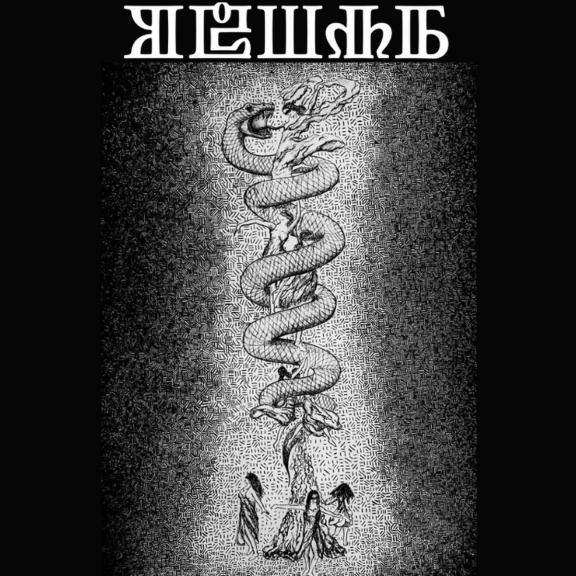The Slovaks of Obšar have always had it their way. Their name refers to a hill where Slovakia fought the Nazis during the Second World War, a symbol of liberation from fascist occupation, and their lyrics refer to Ruthenian nature... yet they don't really seem to be obsessed by tradition: their black metal has always had surprisingly progressive tendencies, seeking to escape the dictates of the genre's codes. So it's hardly surprising that their new EP, V rabstvi merzotnyka, rather than wisely following in the footsteps of their previous albums, goes in new directions.
Indeed, black metal purists or even those who followed Obšar's adventures are likely to rise an eyebrow on Sucha rokyta. One element comes to the fore in their music: electronics become primordial. With an approach to industrial metal reminiscent of a number of Scandinavian bands (Pain and its cousins, such as Turmion Kätilot, King Satan and Alfa Pentatonik), namely catchy melodies grafted onto very angry riffs for a result that verges on the festive, Obšar don't dawdle in opening their EP with a surprise. While kitsch isn't far away, the Slovaks come through with flying colours thanks to breaks in rhythm that suddenly plunge us into a more menacing, cinematic atmosphere, while the darkness gains in thickness and intensity, culminating in a theatrical, emotionally-charged clear-voice finale.
It's a strong opening track, and as a defensive reflex in the face of the unknown, we feared the worst at first, then we were pulled in all directions, and we wondered whether the presence of their compatriot MilchoMalefic, an electronic artist, would turn this side-step into a one-shot. Well, no. The synthesizers are still in the mix as the tone gets even darker with Sľipa vira. As well as enhancing the melodies and giving Obšar's black metal a more rhythmic approach, the electronics bring a hypnotic coldness, an icy tinge and a new depth to the music. It's when the synthesizers develop the mysterious, opaque atmospheres that they work best. For example, the instrumental conclusion Plamiň rozumu, just haunted by the distant echoes of ghostly choirs, goes through a range of emotions, surveys the darkness with demonic fury before ascending towards a more soothing form of light.
That's black metal according to Obšar: a quasi-solar finale, synths to wiggle around like crazies... but also, and above all, mystery, energy, creativity and a desire to remain unpredictable. By refusing to be slavishly disciplined in the face of genre codes, the Slovakian band plays with the notion of ‘extreme music’, making what is often opaque catchy and almost fun, without sacrificing musical rigour and research on the altar of easy entertainment.





